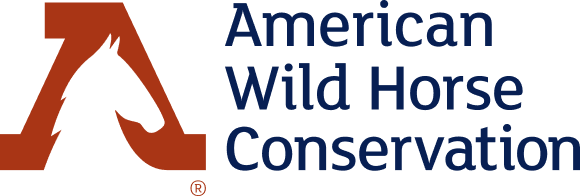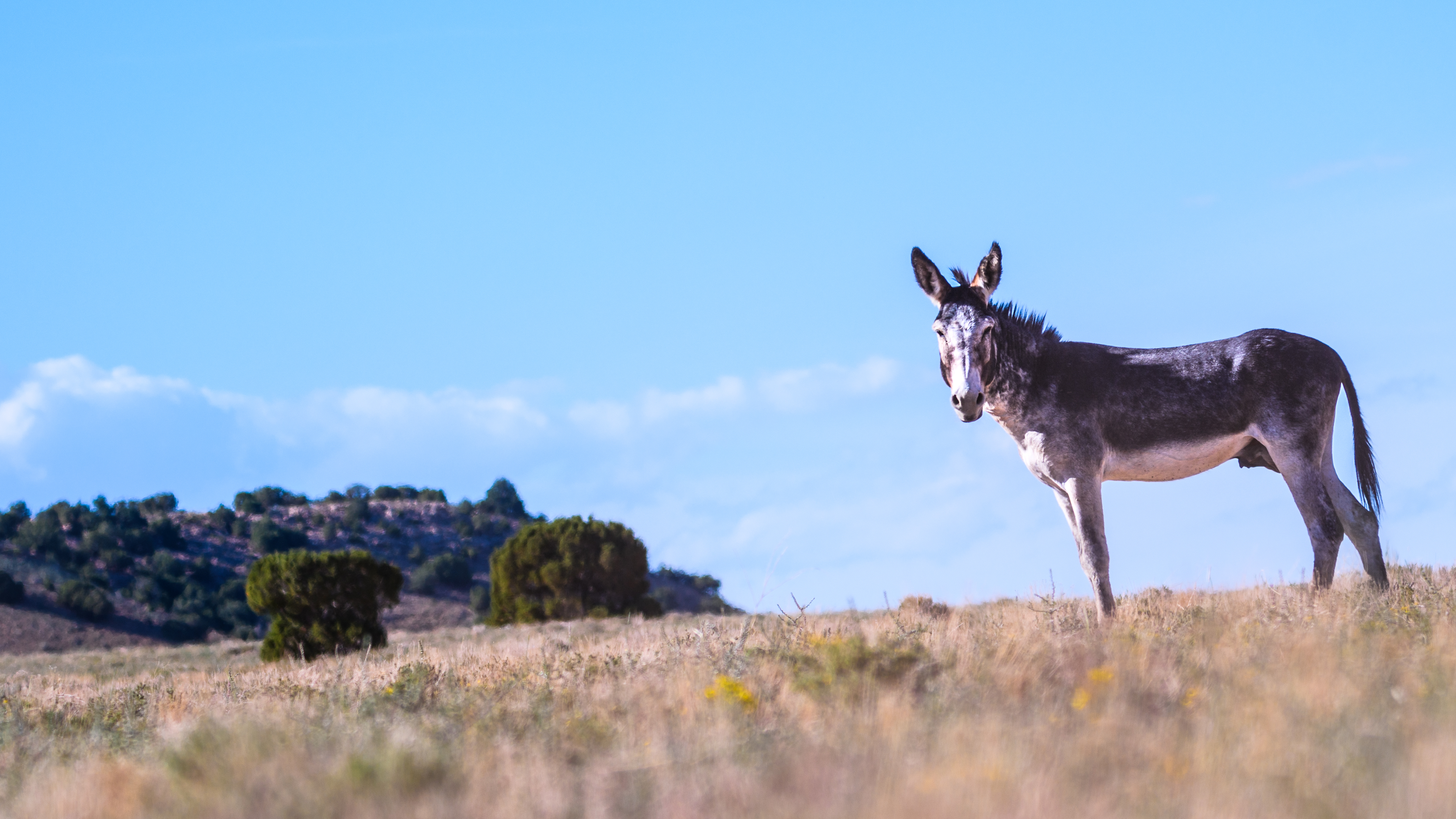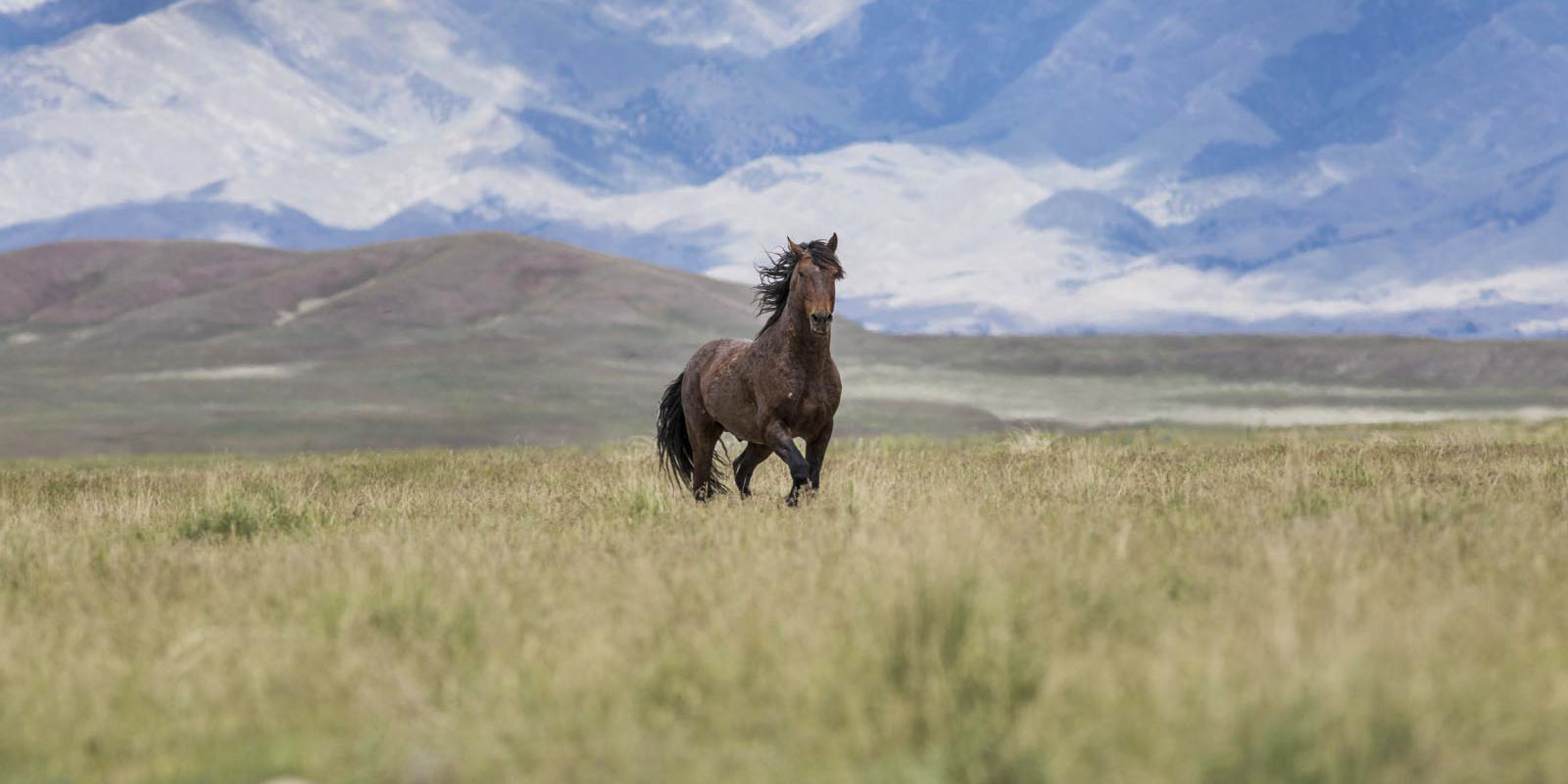By Lisa Smith, Volunteer Ambassador for American Wild Horse Campaign
(May 15, 2023) They say that everything in the desert is trying to kill you. As a native Arizonan, I can tell you that’s true. Yet it is during these endless hot and dry summer months that the burro says, “Game on desert, challenge accepted.” Burros not only survive but help native species find water when sources run dry. Burros dig water wells in the desert. You read that right. They can dig as deep as six feet to find water. What natives drink from these wells? Javelina, deer, various birds, bobcats, and mountain lions are just a sampling. Even grazing cattle benefit from these desert diggers.
What are burros? They are wild donkeys. So how did the burros get here? They got their start in North America in the 1500s, with the Spaniards in the southwest. Later, in the eastern United States, our nation’s Founding Father, George Washington, also had a hand in this. He saw value in the strength of these beasts of burden. In 1785, things were really set in motion when King Charles III of Spain gave Washington a donkey. Thus, Washington appropriately named this long-eared wonder, Royal Gift.
Based on the physical description of this Spanish donkey, who was mostly dark brown with a lighter underside, Royal Gift was without a doubt a purebred Zamorano-Leones. This jack (male donkey) stood between 14.5 and 15 hands tall. That’s a big donkey! Royal Gift wasn’t alone for long. He was only the first of the donkeys that Washington bred at Mount Vernon.
One year later, the Marquis de Lafayette who had previously fought alongside Washington in the American Revolution, gave our General a large jack and several jennies (female donkeys) from Malta. Washington, who had a fondness for giving clever names to his animals, named this jack, Knight of Malta. Word spread quickly through his advertisements and it didn’t take long for breeders from other states to be willing to pay for his stud services. This ultimately produced a strong, large American breed which is the foundation of the American Mammoth Jackstock that is still in existence today. These intelligent, gentle giants are loyal hard workers who are very affectionate towards humans. At this point, our Founding Father was well on his way to becoming a reputable breeder of donkeys but he didn’t stop there.
Washington also used his jacks to breed mules of superior strength. In a mule, which is the offspring of a jack and mare (female horse), you get the best of both equines rolled into one body. While he was serving as our first President of the United States, Washington purchased approximately 30 mares in Pennsylvania. This contributed to an unexpected challenge. Royal Gift was only fond of his jennies and not the mares. Washington’s team had to get creative with the old bait and switch tactic. At the last minute, they would bring in the mares and take out the jennies! Their clever trick worked. Not only did Washington have strong donkeys, he now had solid mules. The contribution made by Royal Gift, Knight of Malta, and others cannot be measured.
The westward expansion of this nation was in part founded on the backs of burros. They served us and now it’s time for us to help them. While they are not native, they have been integrated with our land for centuries. One could easily argue that our native species have now come to rely on our burros for their survival. Burros deserve the gifts of respect and protection from us to be wonderfully wild in this richly diverse environment that we call home.
Why do our burros need protection? It's time to face some hard facts. The United States is the third-largest importer of ejiao in the world. We are only behind China and Hong Kong. Ejiao, pronounced uh-gee-yow, is the gelatin made from boiling the skins of burros. The global demand for burro skins is approximately 8,000,000 to 10,000,000 per year! Burros are slaughtered for their skins, after suffering the stuff of nightmares. It’s been documented that they are being beaten, abused, and killed with sledgehammers. This isn’t only a problem in the United States.
If you follow burros back to their roots in Africa, their domesticated cousins, donkeys, are stolen from families to enter the ejiao black market trade. Imagine the hardships that these families endure when they lose their donkeys. These beasts of burden support them in their day-to-day lives and are still a source of transportation while also being their companions. When the donkeys are gone, the women and/or children in these families tend to be the ones transporting heavy firewood and fetching water. This often results in lost income for women and children missing school.
What can we do to save them? Listen, learn, and get loud. Bray for burros! They cannot speak for themselves so we must do the talking and take action. Get involved with your local community. Make time to volunteer with rescues near you. Communicate with your legislators on both the local and federal levels. Push for the support of The Ejiao Act in Congress. This would ban the knowing sale or transportation of ejiao. We really can find strength in numbers with those who care.
Sources:


